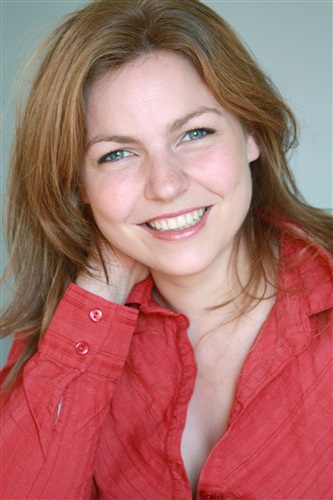Production information
Creative supervisors: Daisy Nichols & Boualem Lamhene
Production Manager: Dalila Mesli
Artistic Director: Barbara Tissier
Musical Director: Georges Costa
Adapter: ?
Dialogue sound engineer: Vincent Demortain
Song sound engineer: Thierry Gault
Dubbing company: Cinephase
Cast
Snow White (Dialogues): Valérie Siclay
Snow White (Singing): Rachel Pignot
The Queen: Sylvie Genty
The Hag: Katy Vail
The Prince (Dialogues): Pierre Tessier
The Prince (Singing): Olivier Cantore
The Slave in the Magic Mirror: Jean-Claude Balard
The Huntsman: Marc Alfos
Doc: Jean-Claude Donda
Grumpy: Gérard Rinaldi
Happy: Jean-Loup Horwitz
Sleepy: Patrice Dozier
Bashful: Michel Mella
Sneezy: Bernard Alane
Singers and Chorus: Jean Stout, Michel Barouille, Michel Costa, Georges Costa, Olivier Constantin, Jacques Mercier, Francine Chantereau, Dominique Poulain, Graziella Madrigal.
2009 Narrator: Philippe Catoire
This information was compiled from the work of François Justamand (La Gazette du Doublage), Rémi Carémel (Dans l’ombre des studios), and Olikos (Les Grands Classiques).
Back to Foreign adaptations

The Digital Era
With the film about to be released in DVD format, the company has two options: restore one of the two existing French versions, in the manner of the original English track, or record a third one. A number of factors will favor the second option.
Indeed, restoring the first French version is not desirable: provided a complete copy is still available in the archives, we’ve seen that the quality is worse than that of the English version, both technically and in terms of translation, and in any case, nobody remembers it.
Restoring the second version makes more sense: the technical quality is aging, and we’ve seen that it had its limits when mixed in Dolby Surround in 1992: there’s only one final mono track, and extending it requires adding reverb (as on the CD marketed at the time). The ideal technical solution is to re-record everything that can be re-recorded.
What’s more, an unprecedented legal problem intervened in the meantime: lead performer Lucie Dolène took legal action to claim her share of the profits from sales of the VHS cassette in France. Since then, all her roles in Disney productions have been scrupulously re-recorded, even if it means changing only a few minutes of a film (The Jungle Book, Beauty and the Beast, etc.). Problem: in the case of Snow White, she plays the lead role, and replacing only her part, apart from being technically risky, makes no sense.
It was decided to record a new French version. But, unlike the 1962 release, the advantages of this version, namely a clearer, more intelligible sound, were completely ignored. The weight of the decades of viewers who had grown up with the previous version over the last 40 years decided not only the marketing aspect of this release (the change is rarely mentioned), but also the artistic aspect (the watchword, as expressed in the press, is to stick as closely as possible to the second French version to erase the feeling of difference).
Cast & Crew
And yet, in addition to its modernity, this version is far from being without charm. It is directed by two masters of the craft, Barbara Tissier for the acting, and Georges Costa for the singing. The former is the unforgettable voice of Princess Sarah, Cameron Diaz and many others. The latter, along with his brother, has been revolutionizing music in variety and television since the 1970s. You’ll hear them in a multitude of theme songs they composed and performed (Like the French version of Maude, Maguy,…). And Michel’s daughter Karine sings for Disney on a regular basis. As a matter of fact, she was one of the two finalists for the role of Snow White. To find out more, read Rémi Carémel’s interview on his website Dans l’ombre des studios (In French).
Despite the obvious desire to copy the previous effort, this version retains its own identity. Forced and coerced, first of all, since only a certain percentage of the previous translation can legally be used when duplicating. The vast majority of song lyrics fall within this quota. The rest of the dialogue is re-translated.
Whether we like it or not, the interpretation is subtly different. Although not as youthful as Christiane Tourneur‘s, the voice of Valérie Siclay is closer to that of a young girl than to the almost maternal figure conveyed by the voice of Lucie Dolène.
All in all, it has to be said that, despite the pitfalls of the exercise (modernizing a soundtrack over 60 years old while preserving the period features), this is a very fine piece of work.
A touching detail: among the chorus members of the third French version is Olivier Constantin, son of Lucie Dolène, the Snow White of the second version.
In 2009, as the film comes out on Blu-ray with a new restoration, the studio decides to use only the original English versions of the main title and various inserts. A decision that has been kept to this day despite the fact that new restorations were done since. That meant that actor Philippe Catoire had to record a narration to be heard over the music for the book scene and the “seasons” scene.

